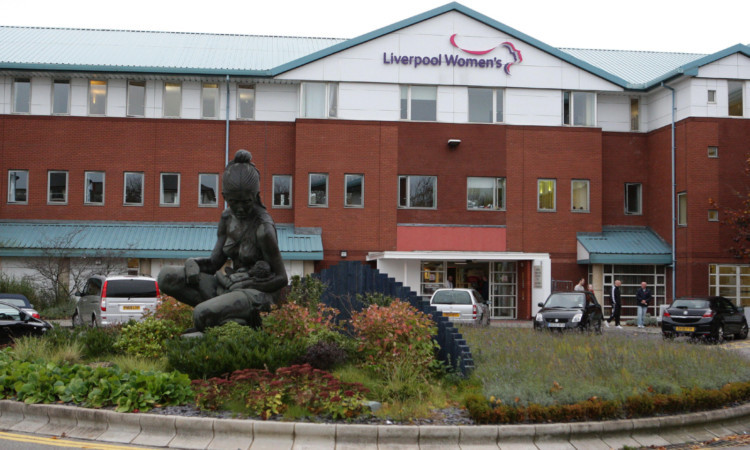
Warnings ignored as early discharges put newborn babies at risk.
Hundreds of new mums are being discharged from northern English hospitals in the middle of the night amid claims maternity services have hit crisis point.
A Sunday Post probe has revealed nine women a week are being sent home between the hours of 11pm and 6am, after giving birth. This is despite warnings discharging exhausted mums in the early hours can put newborns at risk.
The revelation comes amid claims the Government is failing to address a “chronic” shortage of midwives across the country. Patients groups are convinced there is a link between the cuts and women being discharged in the dark.
Katherine Murphy, chief executive of the Patients Association, said: “We are very concerned about the rapid discharge process for mothers who have just given birth.
“Being discharged in the middle of the night is not appropriate under any circumstances, more so when women are feeling vulnerable after an exhausting delivery.
“New mothers should be treated with care, compassion and dignity and clearly these practices indicate that maternity units are putting processes before patients. This is unacceptable and puts patients at huge risk.”
She added: “While we acknowledge that there is considerable pressure on maternity units due to fewer beds and fewer midwives, it is important that women who have given birth are well supported.
“Discharging women too soon after giving birth carries the risk of subsequent complications and unnecessary admissions to already stretched A&E departments.”
Our investigation using Freedom Of Information laws found that 475 new mums were discharged between 11pm and 6am in 2013/14.
That compares to 514 in 2011/12 and 456 in 2012/13. The data was revealed in responses from seven Health Trusts across the region.
East Lancashire Teaching Hospitals NHS Trust was highest with 438 sent home overall, while Newcastle Hospitals had 399, County Durham and Darlington sent home 273, 129 in South Tees, 117 in North Tees and Hartlepool, 49 in Harrogate and 40 in Hull and East Yorkshire.
Meanwhile the Government has been accused of failing to plug the country’s “chronic” shortage of qualified midwives. Before the 2010 election, David Cameron promised to increase the number of midwives by 3,000.
But in January, the Commons Public Accounts Committee warned the safety of pregnant women and their babies during childbirth may be at risk, due to a lack of NHS funding and a national shortage of 2,300 midwives.
And latest figures from the Health and Social Care Information Centre suggest there are still too few midwives being recruited.
In May 2010 there were 20,142 full-time midwives and by February this year it had increased by just 1,733 to 21,875.
Labour MP John Woodcock who represents Barrow and Furness in Cumbria, said: “Giving birth is a hugely stressful and worrying time for every mother and their families.
“The last thing they need at such a time is to find themselves discharged in the dead of night simply because there aren’t enough midwives.
“It’s hard to guarantee safe, high-quality care if maternity units across the country are understaffed.
“We need urgent action to boost midwife numbers from the Government, whose NHS cuts have left a national shortage of more than 2,000 midwives.
“But NHS Trusts also need to make sure that, whatever the strains, mothers’ and babies’ interests come first and no one is sent home late at night.”
Elizabeth Duff, senior policy adviser at the National Childbirth Trust, added: “New mothers on a hospital postnatal ward may not find it a restful environment and sometimes prefer to get home as promptly as possible, especially if they have older children there.
“Such a decision is their choice and should be respected. But this action should never be imposed on a woman because of a shortage of beds or staff in the unit.
“Rare but serious complications can arise in postnatal women and they, and their partners, must be clearly informed about any signs of danger, in mother or baby, before they leave.
“It’s also important that they have the contact number for a midwife they know and trust in case of problems.”
A Department of Health spokesperson responded: “Women who give birth to healthy babies often don’t need to remain in hospital, with many choosing to go home soon after giving birth.
“This should only happen after discussion with the clinician and if mother and baby are well enough.
“During the last two years, we have invested £35 million to improve NHS maternity units and increased the number of midwives by more than 1,600 since 2010 with more than 5,000 in training.”

Enjoy the convenience of having The Sunday Post delivered as a digital ePaper straight to your smartphone, tablet or computer.
Subscribe for only £5.49 a month and enjoy all the benefits of the printed paper as a digital replica.
Subscribe